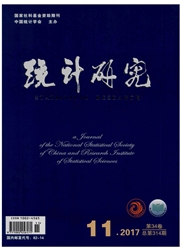

 中文摘要:
中文摘要:
代际收入流动性主要由代际收入弹性来度量,反映了社会的机会平等与经济公正程度,为收入分配研究提供了动态视角。对代际收入弹性的估计,主流方法都是建立在变量误差模型基础上的。随着新数据集的使用,研究者对收入动态方程假设进行了修正,从而推动了变量误差模型的发展,反过来变量误差模型的发展又促进了代际收入弹性的一致性估计。
 英文摘要:
英文摘要:
Intergenerational income mobility, estimated by intergenerational income elasticity, reflects the extent of equal opportunity and economic justice and provides dynamic viewpoint for income distribution. The estimation of intergenerational income elasticity is based on errors-in-variables model. On the one hand, with the use of new types of datasets, researchers relaxed the assumptions of dynamic function of income and developed errors-in-variables model. On the other hand, the development of errors-in-variables model is helpful to the consistent estimation of intergenerational income elasticity.
 同期刊论文项目
同期刊论文项目
 同项目期刊论文
同项目期刊论文
 期刊信息
期刊信息
